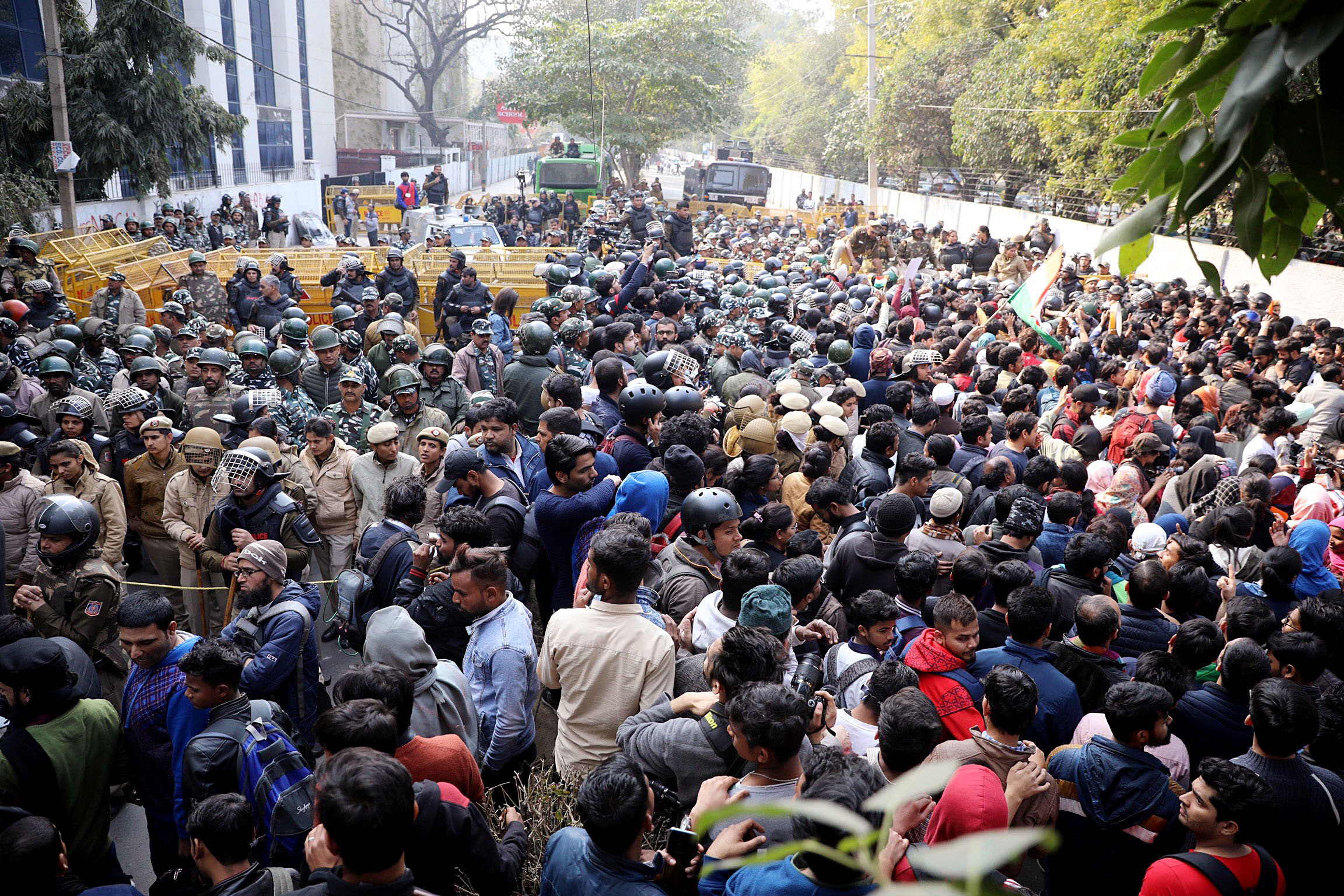Thousands in Montenegro march against religion law

- Country:
- Montenegro
Thousands of people, led by Serbian Orthodox Church clerics, marched peacefully through the Montenegrin capital Podgorica on Saturday in protest against a law they fear will be used to target the church's assets and status.
Protests have been underway since December following the adoption of a law that allows the state to take over the property of a religious community if it cannot prove it owned it before 1918 - when the the-then Kingdom of Montenegro joined the Kingdom of Serbs, Croats, and Slovenes that preceded Yugoslavia. The Serbian Orthodox Church is the largest denomination in Montenegro, a tiny Balkan country of 620,000 people. The Church has about 12 million followers, mainly in Serbia, Bosnia, and Montenegro.
The marchers were led by Metropolitan Amfilohije of Montenegro and Onufriy, the head of the Ukrainian Orthodox Church that is loyal to the Patriarchate in Moscow and priests who chanted hymns. They also waved Serbian flags and church banners and halted at one point to say prayers. "When they (the government) ... started snatching people's soul, the churches and religious sites ... then the people stood up," said Matija Spasojevic, 24, from the northern city of Nisi.
Montenegrin President Milo Djukanovic accused Serbia and Russia on Friday of using the Orthodox Church to undermine his country's independence, NATO membership and its attempt to join the European Union. Belgrade and Moscow dismissed the accusations, made in an interview with Reuters. Bishop Joanikije, the head of a diocese in Montenegro's north, told Reuters this week that the law "contains elements of discrimination (against the Serbian Orthodox Church) in comparison to other property owners in Montenegro."
The Serbian Orthodox Church, which had a role in fomenting the nationalism that contributed to the bloody collapse of Yugoslavia in the 1990s, sees Montenegro as its medieval cradle and owns churches, monasteries and other property there. Joanikije said that although the Serbian Orthodox Church, has attempted to distance itself from politics in Montenegro, the clergy and faithful "have the right to a say."
"This (protest) is about religious and property rights ... about the dignity and the right to existence," he said. Ethnic Serbs account for around a third of Montenegro's population. Many Serbians have roots and families in Montenegro, while tens of thousands of Montenegrins reside in Serbia.
"Firstly, I am a Serb and only then a Montenegrin," said Dragomir Drobnjak, 67, a pensioner from Podgorica. Serbia and Montenegro are both negotiating entry to the EU but Belgrade is not seeking membership in the defense alliance.
(This story has not been edited by Devdiscourse staff and is auto-generated from a syndicated feed.)
ALSO READ
Water level in Ural river in Russia's Orenburg rises 50 cm, news agencies report
Homes flooded after Ural River rises quickly in Russia's Orenburg
China's Xi meets with Russian Foreign Minister Lavrov to bolster strategic partnership against Western pressure
Ukraine says it destroyed 14 of 17 drones launched by Russia
Floods swamp scores of settlements in Russia and Kazakhstan










